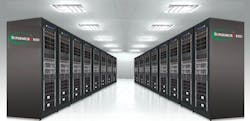What's Up With Supermicro?
Super Micro Computer, Inc. (Supermicro), one of the primary builders of NVIDIA GPU rack and cooling hardware, is once again in the midst of an ongoing string of serious problems that investors, regulators and industry commentators have found troubling.
These include accounting problems, auditor departures, possible delisting from the NASDAQ stock exchange and lawsuits.
Supermicro has had problems like this before. Its shares were briefly pulled off Nasdaq in 2018 after failure to submit financial filings. The resulting SEC investigation eventually led to the 2020 accounting fraud settlement.
The persistence of such cases speaks volumes about the company’s capacity to implement effective internal controls and governance reforms.
So what are the current issues?
Accounting Problems
Supermicro delayed the filing of its annual report for the fiscal year that ended 30 June 2024 for almost 50 days.
The delay was due to needing more time to review its internal controls on financial reporting.
This protracted escalation came after a short-selling company, Hindenburg Research, said Supermicro manipulated accounting data, secret related-party transactions and flouted export controls. Super Micro Computer denied the claims.
Hindenburg’s audit reportedly found "glaring accounting red flags" and other problems in the firm. These charges included early attribution of revenue and understating expenses, as had been the case before.
In the previous investigation, the SEC accused Supermicro of misreporting its 2015 through 2017 financial statements in 2020, resulting in a $17.5 million settlement.
Auditor Resignation
On 30 October 2024, Ernst & Young (EY), Supermicro’s independent auditor, announced it was leaving its position. This is considered a huge red flag in the financial community.
In its resignation letter, EY questioned the firm’s governance, openness and internal financial reporting controls.
According to an AP report, EY said it was "no longer able to accept management’s and Audit Committee’s statements" and "not prepared to participate in the management-prepared financial statements."
This resignation has sparked serious concerns over the credibility of Supermicro’s financial statements and internal governance mechanisms.
Potential Nasdaq Delisting
Following the failure to submit its annual report in time, Supermicro was sent a notice by Nasdaq on September 17, 2024 notifying the company it was in violation of listing rules on financial reporting.
The SEC gave the company 60 days to develop a plan to return to compliance or risk being delisted.
On November 19th , Supermicro filed a compliance plan and hired BDO USA as its new independent auditor.
These efforts are hoped to be enough to avoid the server maker's second time being delisted from the NASDAQ.
Legal Investigations
In September 2024, the Department of Justice (DOJ) announced that it had opened an investigation into the accounting practices of Supermicro, apparently as a result of a former employee initiating a whistleblower action.
The whistleblower claimed that the company was falsely accounting and over-reporting revenue in 2020-2022.
The DOJ investigation potentially could open the door to more regulatory attention and lawsuits.
Governance and Management Concerns
These ongoing accounting and internal controls problems have prompted calls for leadership change at Supermicro.
Investors and analysts have questioned the effectiveness of the company’s board of directors and its CEO, Charles Liang. The financial press has reported suggestions that leadership might need to be replaced to build confidence and provide oversight.
Supermicro is in a state of financial, legal, and business turmoil right now. The combination of issues identified above have left the company with much uncertainty about its future.
Resolving these problems will require significant governance, financial and internal control changes to regain stakeholder confidence and normalize the company’s activities.
Forecast Is Murky
On the plus side, the week Supermicro filed their plan and notification of their engagement with BDO, their stock went up 40%, at least signaling some investor confidence.
This was despite rumors that major partner Nvidia was redirecting orders to other server manufacturers in an effort to prevent supply chain disruptions if Supermicro had problems delivering.
As of this writing, amid fresh lawfare alleging breach of fiduciary duties, Supermicro stock is gaining ground on the heels of Nvidia's recently published third-quarter results (along with other Nvidia partners).
However, concurrent with all the legal and market turbulence surrounding the server maker, Elon Musk's xAI reportedly shifted a $6 billion AI server order from embattled Supermicro to its close industry competitor, Dell.
Ultimately though, Supermicro is definitely now delivering direct-liquid-optimized NVIDIA Blackwell server solutions.
As featured at this week's Supercomputing Conference (SC24) in Atlanta, Supermicro says its SuperClusters with the NVIDIA HGX B200 8-GPU, NVIDIA GB200, NVL4, and NVL72 systems are optimized for state of the art AI compute density.
The following video shows off Supermicro's SC24 highlights in the realm of AI and HPC infrastructure.
About the Author

David Chernicoff
Matt Vincent
A B2B technology journalist and editor with more than two decades of experience, Matt Vincent is Editor in Chief of Data Center Frontier.



